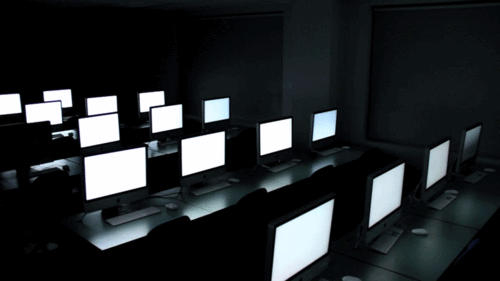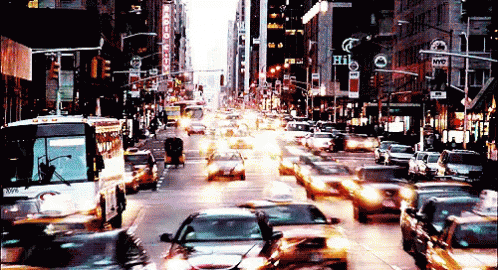
Emerging from the underground of the 23rd Street subway station, I walk two blocks to the entrance of not only Manhattan’s largest Cyber Center, but my favorite one. The fifty-story building is made completely of glass, allowing pedestrians to see directly into each floor of the center. Each floor has hundreds of state-of-the-art Cyber Terminals with the highest speed internet access in all of the United States. Surrounding the terminal labs are breakout rooms that companies, students, or any group needing internet access can rent out to work in while they use the terminals. With my office only a few blocks away, we often rent out an entire floor when we have a busy week so the whole staff can collaborate on projects with unlimited terminal access. On a normal day however, we have our Cyber Experts collecting data from the terminals and bringing it back to the office to be used in our work.

Inside the center, I walk past the welcome desk and into the elevator. Clicking the button for floor 50, I watch through the glass as I ride past each floor. The morning is often one of the busiest times for the center, as many adults come before work to log into their Cyber Accounts to check for messages or surf for information on the web. In contrast, most of the younger users come to the center at night to play games, watch videos, chat with friends online, or engage with their favorite online communities.

Stepping off the elevator, I see a woman in her late-twenties, probably only a few years older than me, sitting at a large white desk staring into her own Cyber Terminal.
“Are you Chelsea?” I ask, as if I don’t see the nameplate on her desk.
“Yes!” She says, reaching down and fumbling for something in her purse. “You must be Becky, I have your Cyber Card right here.”
“Thank you so much, you’re a lifesaver,” I say. “I definitely would have lost this forever.”
As she hands me the card, I notice her copy of The New York Times issue open to the same article about the new Times Square Cyber Center. However, instead of just reading it, she had written comments all over in red pen and put a giant X across the title.

“Sorry if this is a weird question, but I read that same piece this morning,” I say. “Do you know anything else about the new Cybercenter that wasn’t in the article? You don’t seem to be happy about the announcement.”
“Well, I’ve been working here for a few years now, and all I’ve can say is that spending too much time in the digital space is never a good idea,” Chelsea says with a shrug. “I’ve seen many people get addicted to Cyber Terminals if they spend too much time on them. Some people come here and they just never leave.”
“But how different will one more Cyber Center be?” I ask. “There are 1.6 million people in Manhattan, aren’t they just trying to accommodate more people and make each center less busy?”

“Maybe,” she says, clearly not convinced. “I’ve just heard that this is the start of a new idea: enough terminals for everyone in Manhattan. I think it's a dangerous concept. If everyone has their own terminal, there’s no longer a separation between the Cyber Space and our real lives. Imagine never being able to disconnect from work or school or online communities. That’s not a world I would want to live in.”
“You’re right,” I say, although to be honest, I have never considered any of it. “Thank you so much for the card.”

Walking back towards the elevator, I looked down at the sea of people with their noses inside the screens. I had always thought of the internet as an incredible thing, but is that just because our access was limited by location. If we had it all the time would it no longer be special. I couldn’t help but wonder, was she right? More importantly, if what she said was true, what would life be like if everyone had the internet in their homes?
What would life be like with personal computers?
Click here to return to the "Welcome to the Cyber Center" homepage.